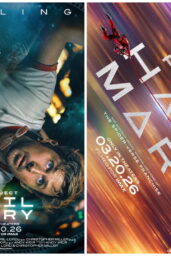If there's one film that's been making waves this awards season, it's Anora. Sean Baker's Brooklyn-set comedy-drama has been on a winning streak, and its latest triumph at the Writers Guild of America (WGA) Awards for Best Original Screenplay has all but cemented its place as the Oscar frontrunner. But what makes Anora so special, and why is it resonating so deeply with both critics and audiences alike? Let's dive in.
Anora isn't just another indie film—it's a cinematic tour de force that blends humor, heartbreak, and social commentary into a story that feels both intimate and universal. The film follows Ani, a Brooklyn exotic dancer played by the phenomenal Mikey Madison, who finds herself entangled in a whirlwind romance with Ivan, the son of a Russian oligarch. What starts as a transactional relationship quickly spirals into a chaotic, high-stakes adventure that explores themes of class, identity, and the fragility of dreams.
The WGA win is a significant milestone for Anora. Historically, films that sweep the DGA, PGA, and WGA awards are almost guaranteed to take home the Oscar for Best Picture. The only exception in recent memory is 2005's Brokeback Mountain, which lost to Crash. But with Anora's momentum, it's hard to imagine a similar upset this year.
Sean Baker, the film's writer and director, has long been a champion of marginalized voices in cinema. From Tangerine to The Florida Project, Baker has a knack for telling stories that feel raw, real, and deeply human. With Anora, he's operating on a grander scale, but his signature empathy and attention to detail remain intact. The film's screenplay is a masterclass in balancing humor and tension, with dialogue that crackles and characters that leap off the screen.
The ensemble cast is another standout element. Mikey Madison delivers a career-defining performance as Ani, capturing both her toughness and vulnerability. Yura Borisov, as the enigmatic Igor, provides a quiet yet powerful counterpoint to Madison's fiery energy. Together, they create a dynamic that's as compelling as it is unpredictable.
But Anora isn't just a critical darling—it's also a box office success. With a worldwide gross of over $36 million, the film has proven that indie cinema can still draw crowds. Baker's advocacy for theatrical distribution has struck a chord in an industry increasingly dominated by streaming platforms. His plea for a 90-day theatrical window feels both timely and necessary.
Conclusion:
As we inch closer to the Oscars, Anora stands tall as a testament to the power of independent filmmaking. Its WGA win is just the latest in a string of victories, and it's hard to imagine anything derailing its path to Best Picture glory. But beyond the awards, Anora is a film that reminds us why we go to the movies—to laugh, to cry, and to see ourselves reflected on the screen.
Personal Impressions:
Anora is a film that lingers long after the credits roll. Sean Baker's ability to blend humor and heartbreak is unparalleled, and Mikey Madison's performance is nothing short of revelatory. While the film's ending is bittersweet, it feels earned, leaving audiences with a sense of catharsis. If there's one critique, it's that the film's runtime could feel a bit daunting for some viewers. But every minute is worth it.
Do you think Anora will sweep the Oscars, or could there be a surprise upset? What's your favorite Sean Baker film, and why?












